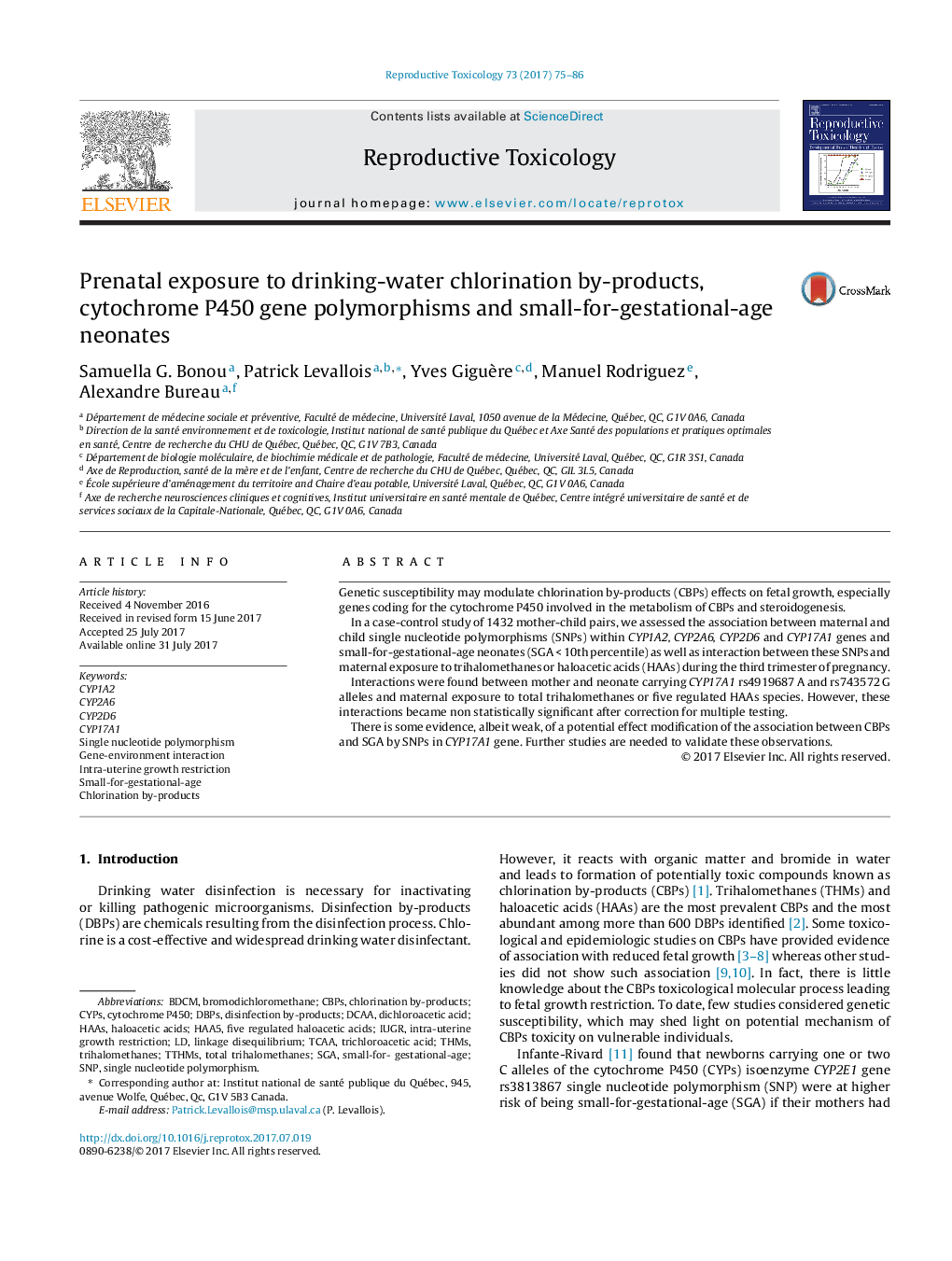| Article ID | Journal | Published Year | Pages | File Type |
|---|---|---|---|---|
| 5561561 | Reproductive Toxicology | 2017 | 12 Pages |
â¢Chlorination by-products (CBPs) is a possible etiologic factor of small-for-gestational-age (SGA).â¢Genetic susceptibility may modulate chlorination by-products (CBPs) effects on fetal growth.â¢Genetic variants in CYP17A1 gene could modify the risk of SGA related to CBPs.
Genetic susceptibility may modulate chlorination by-products (CBPs) effects on fetal growth, especially genes coding for the cytochrome P450 involved in the metabolism of CBPs and steroidogenesis.In a case-control study of 1432 mother-child pairs, we assessed the association between maternal and child single nucleotide polymorphisms (SNPs) within CYP1A2, CYP2A6, CYP2D6 and CYP17A1 genes and small-for-gestational-age neonates (SGAÂ <Â 10th percentile) as well as interaction between these SNPs and maternal exposure to trihalomethanes or haloacetic acids (HAAs) during the third trimester of pregnancy.Interactions were found between mother and neonate carrying CYP17A1 rs4919687Â A and rs743572Â G alleles and maternal exposure to total trihalomethanes or five regulated HAAs species. However, these interactions became non statistically significant after correction for multiple testing.There is some evidence, albeit weak, of a potential effect modification of the association between CBPs and SGA by SNPs in CYP17A1 gene. Further studies are needed to validate these observations.
